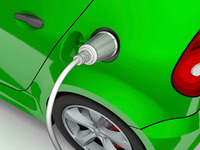Research and Markets: Hybrid-Electric Vehicles, Remains Insignificant At 1.4% Of The Global New Vehicle Market In 2010
SEE ALSO: Electric Vehicles - Solution or Diversion
DUBLIN January 22, 2011; Research and Markets has announced the addition of the "The Electric Vehicle Batteries Report" report to their offering.
This report reviews current automotive propulsion battery technologies and the drivers and barriers that are influencing the markets for battery-powered vehicles, which include those that rely solely on battery power and those that use it only part of the time, such as hybrid-electric and fuel cell vehicles.
Abstract
The market for hybrid-electric vehicles, although still small at only about 1.4% of the global new vehicle market in 2010, has been well established for some years and has stimulated vigorous research and development in the battery sector in attempts to reduce the cost, size and weight of the necessary electrical storage device while maintaining or increasing its storage and power delivery capacity. Now, with plug-in hybrids, electric-only vehicles and fuel cell vehicles approaching the point of entering the market in mass-production volumes, R&D has intensified and substantial investments are being made worldwide in production facilities for automotive propulsion batteries.
While lithium-based batteries are currently receiving the most attention, research continues with a wide range of alternative technologies that appear to offer varying degrees of promise in terms of increased energy density, durability, safety and affordability. This quest is being supported by government grants in several countries as the automotive industry strives to comply with increasingly demanding fuel economy standards and emissions regulations, and the world faces an uncertain future regarding the supply and the cost of oil.
While the current cost of electricity as a transportation fuel makes it an appealing option, battery technology remains expensive and the realistic electric-only driving range available between battery recharges is very limited when compared to what consumers are used to from conventional vehicles. Compounding this is the lack of an extensive recharging infrastructure and concerns regarding the emissions created when recharging from fossil-fueled electricity sources, which account for most of the world's supply. Both of these issues represent additional sectors that will require massive, worldwide investment if they are to be adequately addressed.
Key Topics Covered:
- Executive summary
- Introduction
- History
- Batteries
- Market drivers
- Hybrids
- Fuel cell vehicles
- Toxic emissions
- Market barriers
- Standards
- Electricity grid capacity
- Resource supplies
- Rare earths
- Lithium
- Production capacity
- Cost
- Batteries
- Electric vehicles
- Plug-in hybrids
- Non plug-in hybrids
- Recharging infrastructure
- Purchase premium payback
- Consumer preferences
- Market forecasts
- LIST OF FIGURES & TABLES
For more information visit http://www.researchandmarkets.com/research/20688d/the_electric_vehic.



